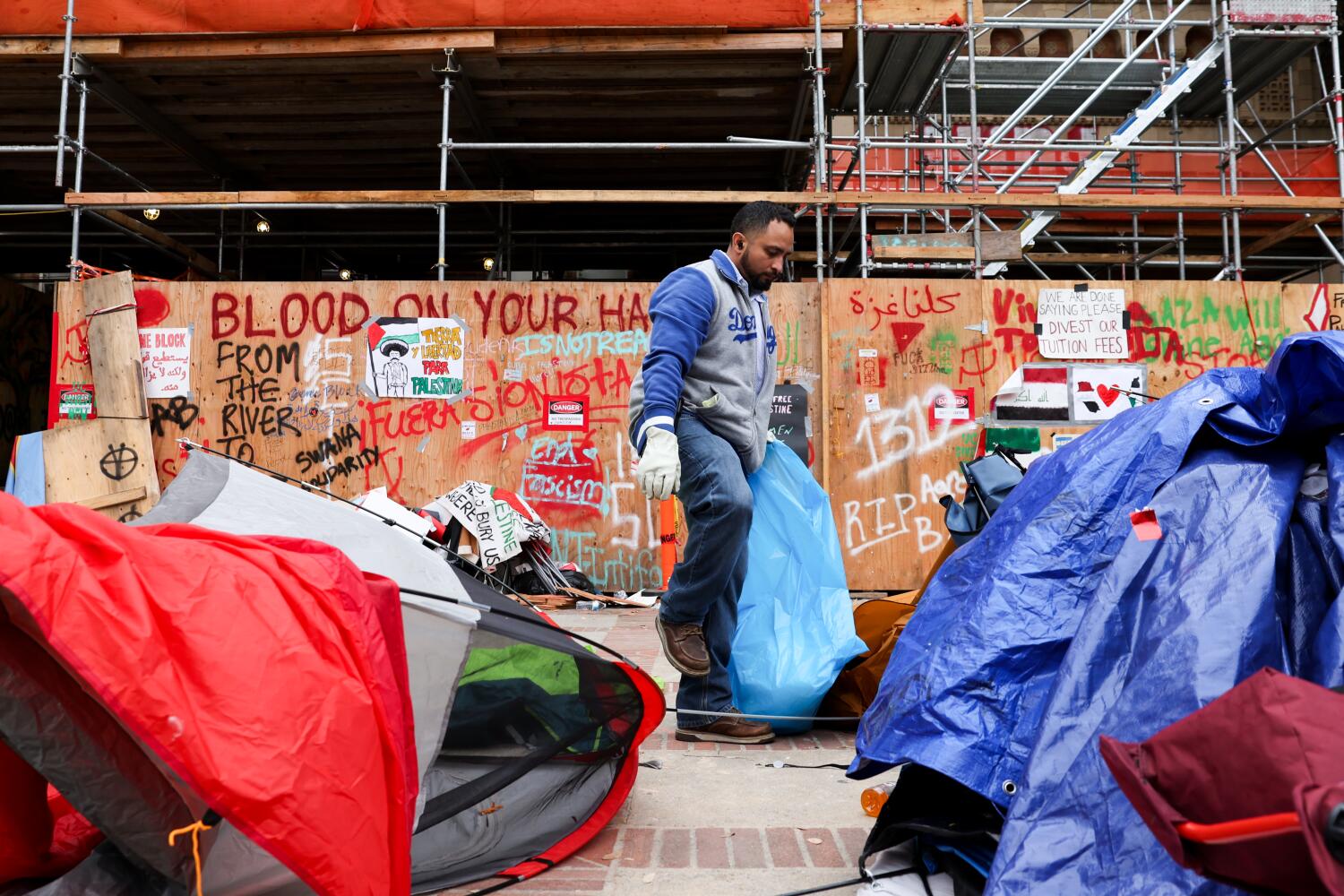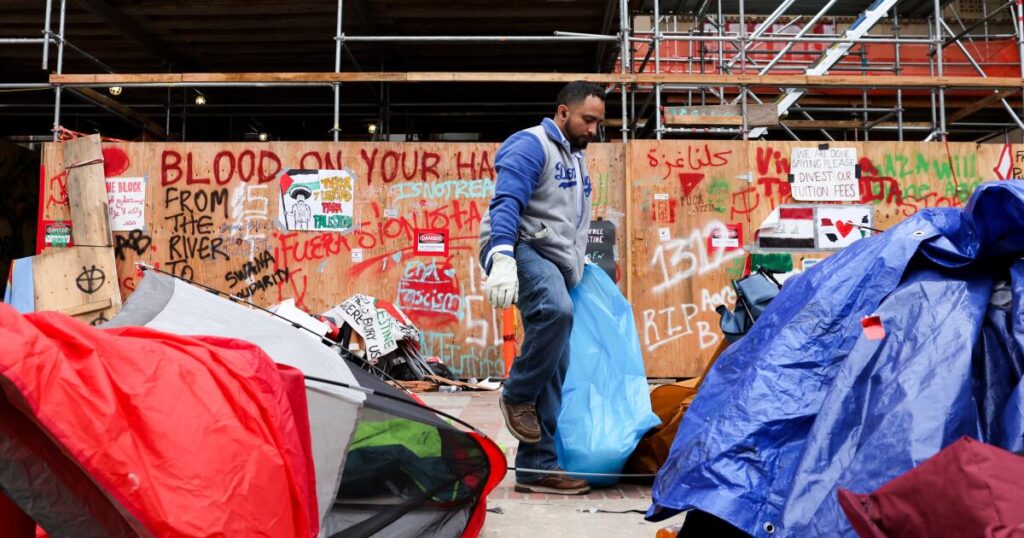
Items including tents, chairs and yoga mats were removed from a UCLA camp occupied by pro-Palestinian protesters Thursday morning with the help of bulldozers and stuffed into a large gray dumpster.
Lying on the grass was a pack of unopened plastic water bottles. Nearby, two white trucks were loaded with wood that protesters used to barricade the camp. Four UCLA graduate students walked to Dickson Court, where an on-campus encampment once stood, carrying medical masks and other supplies for protesters, only to find that the encampment had been dismantled.
They decided to give their donation to one of the other colleges in Southern California that has a camp.
Such camps have spread to college campuses across the country, creating a student movement unlike any other this century. Protesters are calling on universities to stop doing business with Israel or companies they say support the Gaza war. Police arrested at least 25 protesters on Tuesday at Cal Poly Humboldt, where anti-war demonstrators occupied buildings, prompting school officials to close the campus.
“I think it’s really important to stand up for what you believe in,” said a 29-year-old UCLA graduate student who asked not to be named out of fear of retaliation. “I’ve been here a few times to donate to people in the camp, and each time, I’ve been greeted with grace and respect.”
Throughout the week, she and her friends brought water, chips, masks and protective glasses to protesters.
“I feel privileged that our school is participating in something that can make a difference, hopefully,” said a 24-year-old graduate student in the group.
Outside Dickson Court, pro-Israel students also gathered to watch the cleanup.
A 20-year-old UCLA undergraduate who participated in Sunday’s counterprotest spoke on condition of anonymity for fear of being attacked. He said a group of people from the Jewish community gathered in front of the camp, sang the Israeli national anthem, hired a DJ and held a dance party.
The undergraduate student, who identifies as Jewish, said he was frustrated by the camps. But he stressed that he had not participated in any other counter-demonstrations and condemned the violence that began just before midnight on Tuesday night.
For hours, counter-demonstrators threw objects, including wood and metal barriers, at those inside. Fireworks were set off inside the camp and some counter-protesters tried to force their way inside.
“It’s really a shame,” the undergraduate said of the attack on the camp. Violent counter-protesters “need to be punished to the fullest extent of the law. They do not represent our movement, and therefore they must be punished for not acting in accordance with the law and the values they claim to uphold.”
He said he has lost many friends since the war between Israel and Hamas began because of their different views.
“It’s unfortunate because for me, it’s very personal because I’m from the Middle East,” he said. “I have family in Israel and I have family in Iran, and it’s heartbreaking to see chaos erupt in the areas where my ancestors are from and to see individuals who have nothing to do with the ongoing violence say I don’t know what I’m doing.” Talking otherwise. They couldn’t be friends with me because of their politics.
With the camp now razed, some protesters told The Times on Thursday they feared the momentum for pro-Palestinian protests in Westwood might stall.
“There’s a lot of anger and frustration and a desire to continue protesting, but we’re actually still figuring out what that’s going to look like,” said a 19-year-old UCLA freshman who declined to give her name.
Many seemed eager to return to protests at UCLA, although it was unclear what awaited them. A current and former Occidental student said they were aware of the “call for remains” issued by UCLA Wednesday night but believed they would not be called again with the encampment gone.
Some staff seemed more optimistic that protests would return soon.
“I’ll probably go back on Friday,” one of the staff members arrested Thursday said, though she noted that her plans might be thwarted by sleep deprivation. She said she was standing with 10 to 15 faculty members who were booked with her when she was arrested.
Like many on Friday, the staff member declined to give her name for fear of retaliation from the university and said she works in a part of the school where some colleagues seemed wary of the protests.
Some students said they were unclear whether they would face academic repercussions for protesting, although they said they had seen clear emails from the university stating that “disciplinary action, including suspension or expulsion,” could be taken.

